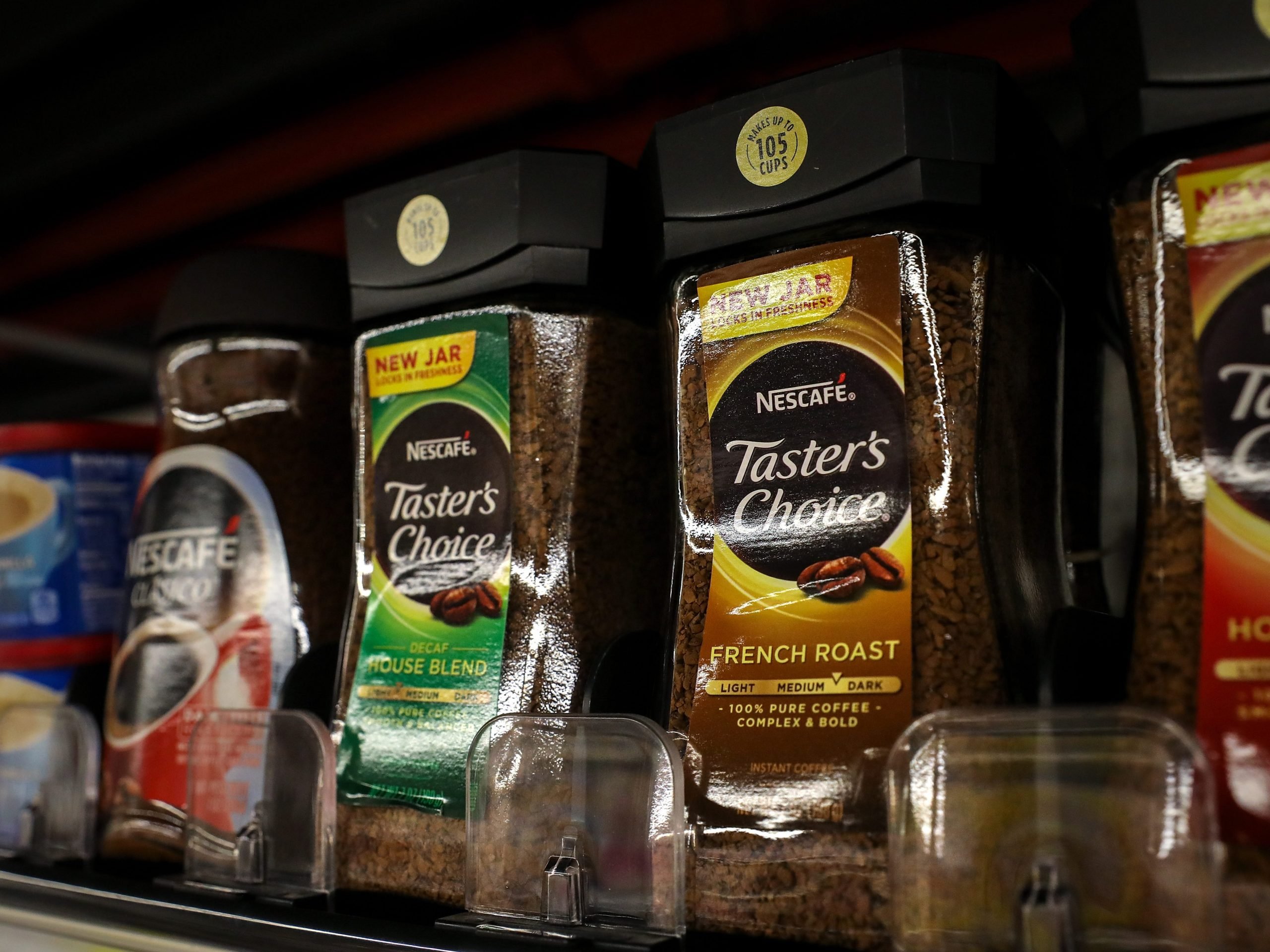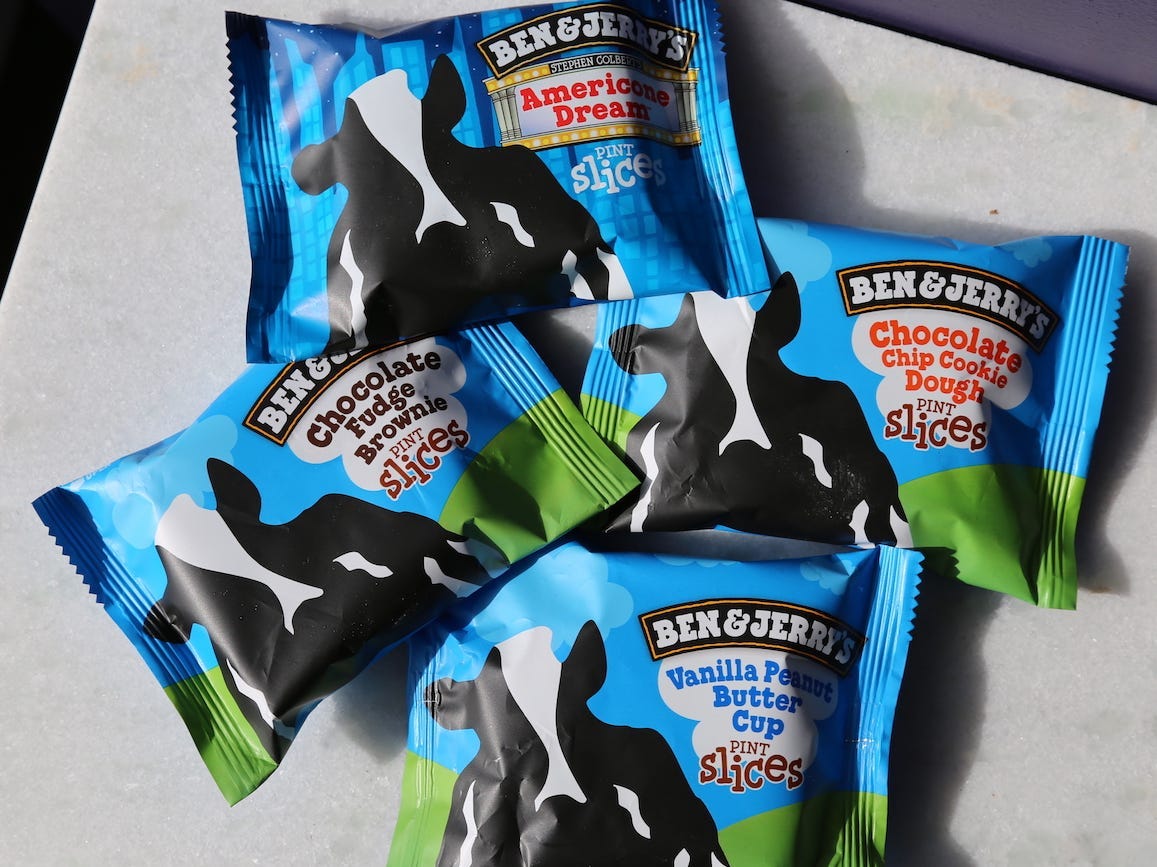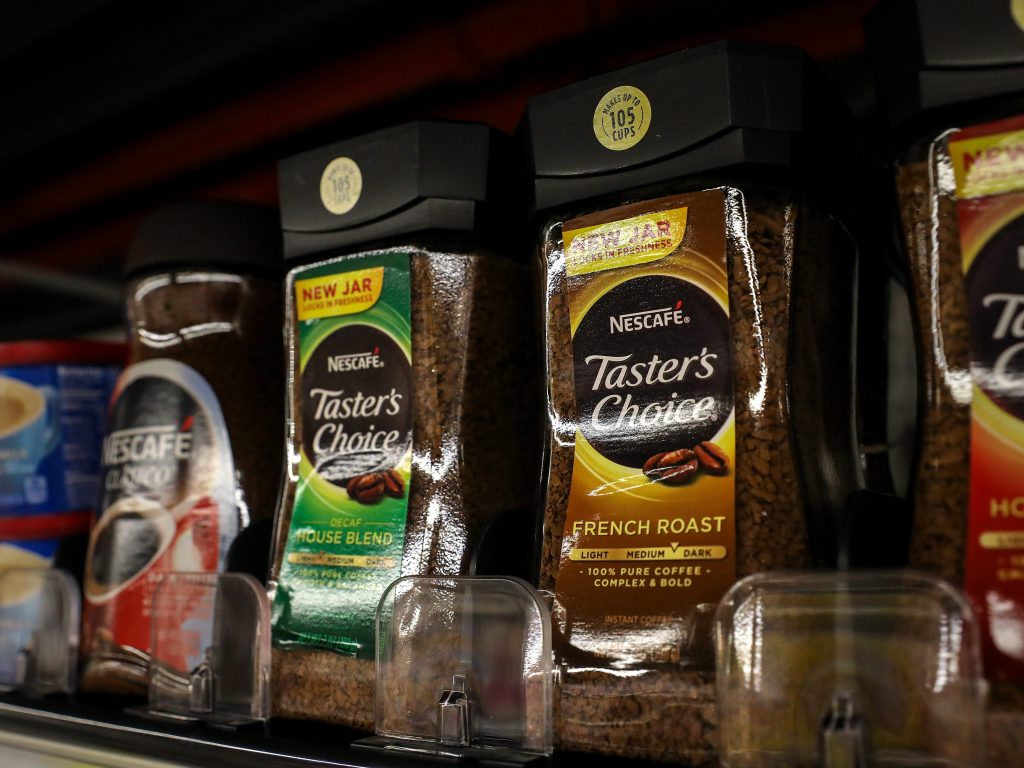
Drew Angerer/Getty Images
- Everyday products like toiletries, food, and coffee are about to get more expensive.
- Nestle, Danone, Unilever, and Procter & Gamble have all said that prices would continue to increase.
- The supply chain is in chaos due to a trucker shortage, backlogged ports, and soaring demand.
The makers of some of the US' most popular household goods have warned that rising prices aren't going away anytime soon.
Nestlé, Danone, Unilever, and Procter & Gamble (P&G) all said in recent earnings calls that prices would continue to increase amid the current supply-chain crisis, affecting items including ice-cream, coffee, and toiletries.
Higher input costs, a lack of truck drivers, shipping problems, and a surge in demand for goods are causing shortages, delays, and soaring prices for both companies and consumers worldwide.
P&G, which makes brands like Tampax, Pampers, and Gillette, said during its earnings call Tuesday that it would raise prices in three of its ten product divisions – grooming, skincare, and oral care. It had already announced higher prices in six other divisions, including its baby and feminine care categories.
P&G Chief Financial Officer Andre Schulten said the increases were generally in mid-single digit percentage terms, and most were implemented in September or would be introduced over the next three months.
He said the price increases would help offset higher production costs. The company said that it now estimated $2.3 billion of after-tax commodity and freight costs will weigh on earnings in the 2022 fiscal year, up from its forecast of $1.9 billion in July.
Unilever CEO Alan Jope said at its earning call Thursday that the company had implemented "rapid" price increases in response to "unprecedented" cost inflation, which he said would continue to remain high into next year.
Unilever said that its prices rose 4.1% in the third quarter. Prices were up 3.8% in its food and refreshments division, which includes the Ben and Jerry's, Hellman's, and Wall's brands. Prices rose 3.9% in its beauty and personal care division and 4.8% across its home care division, which includes laundry and cleaning brands.
"We're in for at least another 12 months of inflationary pressures," Jope told Bloomberg Television. "We are in a once-in-two-decades inflationary environment."

Sarah Schmalbruch / INSIDER
Nestlé, the maker of Cheerios and Nespresso, said Wednesday that its prices had risen by 2.1% in its third quarter, marking its fourth consecutive quarter of increases. CEO Mark Schneider said that its prices had on average risen 1.6% in total over the last nine months, the most in six years.
Schneider warned that "input costs are rising faster than we can roll forward through pricing."
"We expect to progressively increase pricing in a responsible manner over the remainder of 2021 and 2022 with different trends by geography and category," Schneider added.
At Nestlé, Chief Financial Officer François-Xavier Roger said the company expected inflation to increase its cost of goods sold by around 4% this year. He said increases in the price of coffee will likely be larger next year.
And Danone Chief Financial Officer Juergen Esser said Tuesday that the company was being hit by "widespread constraints impacting our supply chain in many parts of the world", and would focus more on "pricing actions" as a result. Danone is the world's largest yogurt-maker and owns water brands including Evian.
The companies said that they saw no signs that consumer behavior had changed as a result of higher prices.
Schulten said that P&G's sales were so far unaffected by price hikes, while Roger said that Danone saw volumes decreasing as a result of consumers diversifying spending as the economy reopened, not because of pricing changes. He added that the company hadn't seen any evidence of consumers stockpiling because of inflation.
Price rises so far had been reasonably moderate, Roger said, adding that there were no immediate reasons for people "to fill up their pantries".
